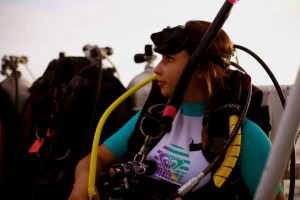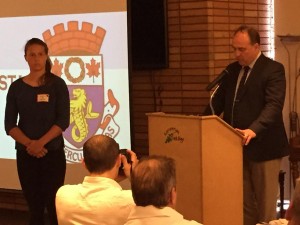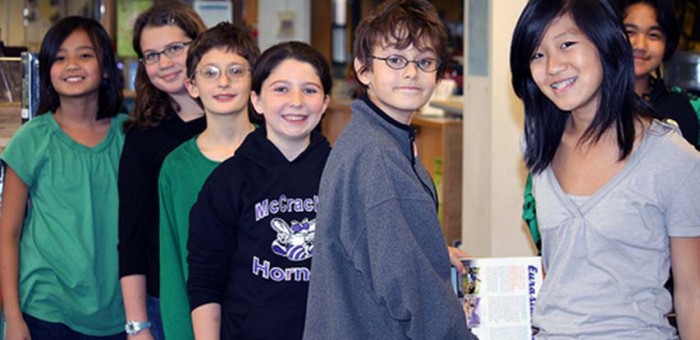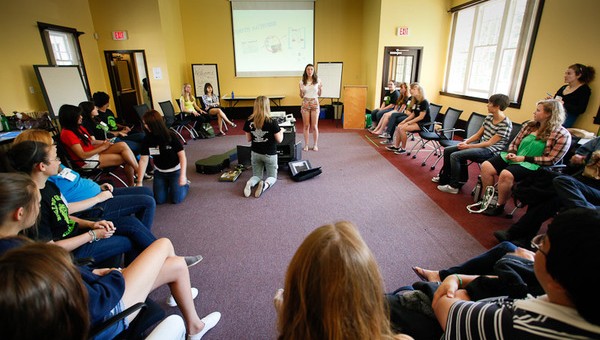Children and Family
Transition-Aged Youth
This is the fourth in a seven week series examining the topic of child and youth mental health in B.C. As this is a complex and multifaceted topic, I will be narrowing my focus to a few popular beliefs and areas of concern that I have witnessed in my role as MLA. The purpose of this series is to debunk these beliefs, increase awareness of these concerns, end the stigma of mental health in our society and provide opportunities for you to impact what is happening in your community.
“There is not only a clash of history and culture, but practically speaking a yawning gap into which many young people and their families are falling every day around the world. The current system is weakest where it needs to be strongest.” –McGorry et. al.
Popular Belief Five: The health care system is structured to provide necessary services
Reality: One of the most common concerns I have heard from constituents and their families trying to navigate through mental health services, is the difficulty and confusion they have faced in the transition from the youth to adult systems.
Transition-age youth are “young people ages 16 to 24 who are moving from the child and youth to adult mental health system”. When young people reach the age of 19, they ‘age out’ of services provided by Child and Youth Mental Health and the Ministry of Child and Family Development and must move to adult mental health services, which are provided by the Ministry of Health in conjunction with other allied ministries and organizations. However, this transition can often prove confusing and fraught with gaps.
Issues Facing Transitioning Youth
“Once you get to my age [23] there’s nothing” – McCreary Centre Study Youth Participant on the transition from youth to adult services.
Last June, the Select Standing Committee on Children and Youth heard first-hand experiences from experts and youth alike about the many barriers that exist for transition-age youth in our mental health system today. From difficulty navigating services to inconsistencies between service systems to a lack of age-appropriate services and a need for additional supports, each of these things can work alone or in conjunction to further derail a young person transitioning from youth to adult services.
When a young person with mental health problems turns 19, the supports and services that they have been receiving throughout their youth are no longer available to them. When this happens, they must adjust to the abrupt loss of their past relationships with youth service providers and support systems and learn to navigate a new system with new people and new procedures. All this while trying to cope with both the challenges of living with a mental illness as well as the challenges that accompany any youth entering into adulthood. These realities can make it extremely arduous and frightening for a transitioning young person.
To further exacerbate this transition, the youth and adult mental health systems can prove exceedingly disjointed. Young people can find that services and supports that were available to them under the youth system may not have an equivalent under the adult system. When a comparable support does exist, the individual may not qualify for similar services as an adult due to differences in eligibility criteria. In fact, almost 50% of child and youth mental health practitioners have indicated that ineligibility was the greatest barrier for young people moving into the adult system, and 64% agreed that eligibility requirements hindered transition planning.
Furthermore, the lack of appropriate services to support this age group can leave many transition-aged youth feeling out of place and may even prevent them from accessing supports and services in the future. With pediatric services often aimed at a younger age group and adult services often aimed at an older-adult age group, it can be hard for these young people to find age-appropriate services that meet their needs.
Closing the Gaps
“It felt like I was asked to build the wall of China, without giving me the tools, without telling me the specific steps to take.” – McCreary Centre Study Youth Participant on the transition from youth to adult services.
With statistics showing that transition-aged youth are one of the largest demographics faced with mental health challenges, it is disheartening to know that our young people continue to be faced with these barriers day-in and day-out. Advocacy groups, mental health professionals and those living with mental health challenges work tirelessly to break down these barriers and have provided a number of first-hand and evidence-based ideas for improving the transition from youth to adult services.
These ideas include steps such as: extending youth services beyond 19 years of age and implementing a more gradual transition process; providing individual support workers to help youth develop a transition plan and navigate the system; improving information sharing and communication between service providers; and providing youth with the skills and techniques needed to reduce, and hopefully prevent, the need to transition into adult services all together.
It is time for government to take genuine steps towards mending these gaps and ensuring that no more youth fall through the cracks of a system that has been put in place to support them.
Weekly Action item
This week’s action item encourages you to get involved in child and youth mental health supports and services in your own community – Volunteer.
There are a number of local organizations throughout B.C. that work hard to provide youth in their community with the supports they need to achieve and maintain a positive mental well-being. The scope and variety of organizations and volunteer opportunities will vary greatly from region to region. Some options include your local Canadian Mental Health Association branch, Big Brothers and Big Sisters, Boys and Girls Club, or even online resources such as Kids Help Phone, Youth Space, and Youth in BC.
It is also important to remember that promoting and supporting the mental well-being of youth can be done in a variety of settings through out our communities and is not limited to organizations that deal directly with mental health. For example, you could volunteer at a local youth drop-in centre, your local community association or community centre, at a school, with a youth sports group or any other youth-involved organization or group.
Access to Mental Health Services
This is the third in a seven week series examining the topic of child and youth mental health in B.C. As this is a complex and multifaceted topic, I will be narrowing my focus to a few popular beliefs and areas of concern that I have witnessed in my role as MLA. The purpose of this series is to debunk these beliefs, increase awareness of these concerns, end the stigma of mental health in our society and provide opportunities for you to impact what is happening in your community.
“The mental health system for children and youth in B.C. is actually not a system at all, but rather a patchwork of services that is inconsistent from region to region and community to community. It is confusing for youth, their families and even the professionals who serve them and, therefore, actually getting the required services is often near impossible.” – Still Waiting: First-Hand Experiences with Youth Mental Health Services in B.C.
Popular Belief Four: Mental Health Services are available and accessible
Reality: Research shows that young people aged 12 to 25 have the highest incidence of mental health challenges across the lifespan, however their access to services remains the poorest of all age groups. While almost a third of Canadians seeking mental health care report their needs unmet, the rate is even higher for children and youth.
Firsthand experiences of families and youth struggling with mental illness paint a picture of a broken and inconsistent system that provides delayed and heavily restricted access to services for a small subgroup of people with severe and complex disorders. Further compounding these issues is the artificial boundary that youth hit when they turn 18 and must transition into a new, and equally disjointed, adult system.
In order to address issues relating to the accessibility of youth mental health services in B.C., we must first understand how these services are delivered.
Who Provides Services?
A 2013 report by the Office of the Representative of Children and Youth examined how youth mental health services are provided throughout the province:
In BC, the Ministry of Children and Family Development (MCFD) and the Ministry of Health (MoH) have operational responsibility for the main streams of publicly funded mental health services for youth. With principal responsibility for community mental health services falling to MCFD and the MoH taking responsibility for primary care delivered by family doctors, specialized inpatient mental health care, and acute care in hospitals run by regional health authorities and the Provincial Health Services Authority (PHSA).
Geographically, these services are delivered by five regional health authorities, the PHSA and MCFD’s 13 service delivery areas. Each health authority is responsible for the development and delivery of its own community- and hospital-based mental health services and programs – this responsibility includes establishing policies, standards and protocols consistent with legislation, provincial policies and standards. In addition, each hospital within a region is responsible for its own operating policies.
Although policies and standards for the delivery of community mental health services are the responsibility of MCFD’s provincial office, each of MCFD’s regions determines how these policies and standards are implemented within the region and without accountability mechanisms back to the provincial office. As a result, MCFD delivers components of child and youth mental health services in a variety of ways across the province, and manages and operates them under a variety of structures.
Furthermore, the MOH identifies family doctors as the foundation of primary healthcare for all British Columbians. This means that individuals with a family doctor should be able to go to that doctor if they believe they have a mental health problem and should expect the doctor to assess the situation, manage the problem and, if necessary, refer them to specialized care. However, this is often not the case as GPs and Paediatricians themselves have reportedly identified that there’s a massive knowledge gap in this area and they do not have the expertise needed to properly address mental health issues.
Mending the System
Given the number of agencies involved in the delivery of youth mental health services, and the apparent lack of oversight and accountability, it is no wonder these shortfalls exist. A number of recommendations for mending these gaps and service access issues have been provided by both experts and those with first-hand experience navigating the system.
One of the recurring recommendations has been a call for a Minister of State for Youth Mental Health or a Minister of Youth Health. This person would act as a single point of accountability to address the needs of youth with mental health problems in B.C.
Other recommendations have included calls for increased government funding – according to a 2008 report mental illness constitutes more than 15% of the burden of disease in Canada yet receives less than 6% of healthcare dollars. As well as a comprehensive youth mental health plan – one which includes performance measures, targets and outcomes, and regular reporting to the public, decision-makers and service providers.
It is clear that the current system for managing and delivering child and youth mental health services in B.C. is unnecessarily convoluted and extremely disjointed. By redesigning our youth mental health system to incorporate age-appropriate, easy-to-access services that not only address the unique circumstances faced by transition-aged youth, but also aim to reduce the need for transition into adult services all together, we can provide our young people with the supports that they both need and deserve.
Weekly Action Item
Building on the last two action items, this week I am asking you to take this knowledge and share your new understanding of mental health with someone else – Inform Others. This can be a friend, a family member, a colleague, anyone you wish. You can share a story, share some resources or even just share this series. You can do this in person, on the phone, by email or over social media. Whatever the method and however large the scope, just get talking.
Celebrating youth in our community – Ella Van Cleave
This is the eighteenth in our series of stories celebrating the outstanding accomplishments of youth in our community. These inspirational young adults are enriching our lives with their passion and commitment to the betterment of society.
Ella Van Cleave
 Ella is an articulate young woman with a tremendous passion for marine life and their ocean home. What’s remarkable is that Ella has already accomplished so much yet she only graduates from high school next month. When we met her for coffee to interview her for this series, she impressed us as a very bright, dedicated, yet unassuming, young activist, mature well beyond her years.
Ella is an articulate young woman with a tremendous passion for marine life and their ocean home. What’s remarkable is that Ella has already accomplished so much yet she only graduates from high school next month. When we met her for coffee to interview her for this series, she impressed us as a very bright, dedicated, yet unassuming, young activist, mature well beyond her years.
 Ella was born in Chattanooga, Tennessee and moved to Victoria when she was in Grade 5. She attended Glenlyon Norfolk School from Grade 5 to Grade 10, then went to Oak Bay High School for Grade 11 and is currently at Glenlyon Norfolk in her graduating year. In addition to being an outstanding student, Ella has distinguished herself as a gifted debater. She has been debating since Grade 7 and has received numerous awards at tournaments. This past year, she and her debating partner won both the Oak Bay High School Golden Gnome and Newman-FISA debating tournaments, with Ella placing as top speaker at the latter. Other debating successes include those obtained at the Vancouver Island Regional Debate Tournament where she won 3rd place as an individual speaker in 2011 and 2nd place as an individual speaker in 2012 and 2013. At the UBC High School Debate Tournament, Ella placed 3rd as an individual speaker in 2013 and she was part of a debating team that took 3rd place in 2014.
Ella was born in Chattanooga, Tennessee and moved to Victoria when she was in Grade 5. She attended Glenlyon Norfolk School from Grade 5 to Grade 10, then went to Oak Bay High School for Grade 11 and is currently at Glenlyon Norfolk in her graduating year. In addition to being an outstanding student, Ella has distinguished herself as a gifted debater. She has been debating since Grade 7 and has received numerous awards at tournaments. This past year, she and her debating partner won both the Oak Bay High School Golden Gnome and Newman-FISA debating tournaments, with Ella placing as top speaker at the latter. Other debating successes include those obtained at the Vancouver Island Regional Debate Tournament where she won 3rd place as an individual speaker in 2011 and 2nd place as an individual speaker in 2012 and 2013. At the UBC High School Debate Tournament, Ella placed 3rd as an individual speaker in 2013 and she was part of a debating team that took 3rd place in 2014.
 There is no doubt her extensive debating experience has helped Ella become a talented public speaker. She was the keynote speaker at the Glenlyon Norfolk Change Conference at her school in 2011 and has spoken at many conferences since then. Ella was the Co-Chair of the Change conference at her school in 2013. Also in 2013, Ella was Assistant Volunteer Coordinator at the Powershift BC conference, where she gave a workshop on sustainable living.
There is no doubt her extensive debating experience has helped Ella become a talented public speaker. She was the keynote speaker at the Glenlyon Norfolk Change Conference at her school in 2011 and has spoken at many conferences since then. Ella was the Co-Chair of the Change conference at her school in 2013. Also in 2013, Ella was Assistant Volunteer Coordinator at the Powershift BC conference, where she gave a workshop on sustainable living.
When Ella heard Fabian Cousteau (grandson of Jacques Cousteau) give a presentation in Victoria, she asked him a question and had a chance to talk to him afterward. This led to Ella being asked to give a TedX talk. At the age of only 14, Ella was a featured speaker at the 2011 TedX event in Victoria. There she identified herself as a “teenage activist” and spoke passionately and knowledgeably about the plight of cetaceans, particularly dolphins and whales who are exploited and kept captive in entertainment facilities. Ella related the extreme stress that these animals are under, from the time of their capture through their life in captivity, which can never replicate their natural habitat. Ella’s impressive TedX presentation can be viewed here.
 Ella’s interest in ocean conservation and cetaceans has led her to be involved in some significant projects. Through contact with film makers Richard and Lincoln O’ Barry who created “The Cove”, an Oscar-winning documentary about the dolphin hunt in Japan, Ella was introduced to the Dolphin Project, which is a campaign under the International Marine mammal project at the non-profit Earth Island Institute in Berkeley, California. Ella is a youth ambassador and writer for the Dolphin Project and she plans to create a youth section for the project, with an education curriculum and activism toolbox to get youth engaged in this important issue.
Ella’s interest in ocean conservation and cetaceans has led her to be involved in some significant projects. Through contact with film makers Richard and Lincoln O’ Barry who created “The Cove”, an Oscar-winning documentary about the dolphin hunt in Japan, Ella was introduced to the Dolphin Project, which is a campaign under the International Marine mammal project at the non-profit Earth Island Institute in Berkeley, California. Ella is a youth ambassador and writer for the Dolphin Project and she plans to create a youth section for the project, with an education curriculum and activism toolbox to get youth engaged in this important issue.
 Ella started diving when she was in Grade 8 and received her diving certification in Australia. She plans to obtain her Rescue Diver certification and work on a Master Diver’s certificate once she turns 18. She describes herself as a child of nature and she has loved the ocean as long as she can remember. She is passionate about diving and has had the opportunity to do underwater filming. Ella was invited to work with biologist and deep-sea explorer Sylvia Earle and MacGillvray Freeman Films and said “it was the coolest thing I’ve ever done”. She is involved in another film project in 2016 with MacGillvray Freeman Films Inc and the One World One Ocean Campaign that addresses the urgent need to address ocean conservation. Ella was fortunate to be invited to Key Largo, Florida, where she was able to dive to the underwater research lab and do some filming for the project.
Ella started diving when she was in Grade 8 and received her diving certification in Australia. She plans to obtain her Rescue Diver certification and work on a Master Diver’s certificate once she turns 18. She describes herself as a child of nature and she has loved the ocean as long as she can remember. She is passionate about diving and has had the opportunity to do underwater filming. Ella was invited to work with biologist and deep-sea explorer Sylvia Earle and MacGillvray Freeman Films and said “it was the coolest thing I’ve ever done”. She is involved in another film project in 2016 with MacGillvray Freeman Films Inc and the One World One Ocean Campaign that addresses the urgent need to address ocean conservation. Ella was fortunate to be invited to Key Largo, Florida, where she was able to dive to the underwater research lab and do some filming for the project.
Ella has become part of an activist network that she describes as “the most genuine group of people”. She finds that the support of a strong network is critical when you are taking on difficult issues and fighting for what you believe in.
 In the future, Ella sees herself doing scientific research “on the things I care about”, which relate primarily to ocean conservation. Ella has recently been offered an impressive scholarship to attend Quest University near Squamish, BC. She’s thrilled and excited to be joining their liberal arts undergraduate program offered on a 60 acre hilltop campus near Garibaldi Provincial Park. The Quest program includes taking one class at a time, in a very intensive format over a period of 3.5 weeks. Ella’s goal is to enter the field of marine science or oceanography, to further her work in ocean conservation.
In the future, Ella sees herself doing scientific research “on the things I care about”, which relate primarily to ocean conservation. Ella has recently been offered an impressive scholarship to attend Quest University near Squamish, BC. She’s thrilled and excited to be joining their liberal arts undergraduate program offered on a 60 acre hilltop campus near Garibaldi Provincial Park. The Quest program includes taking one class at a time, in a very intensive format over a period of 3.5 weeks. Ella’s goal is to enter the field of marine science or oceanography, to further her work in ocean conservation.
Ella’s communication skills are exceptional; her enthusiasm is infectious; her passion for marine conservation is unwavering. It probably comes as little surprise to know that we’re convinced Ella will fulfill her dreams however they may evolve. And one thing is for sure — we’ll be hearing a lot more from her in the years to come.
More Than Mental Illness
This is the second in a seven week series examining the topic of child and youth mental health in B.C. As this is a complex and multifaceted topic, I will be narrowing my focus to a few popular beliefs and areas of concern that I have witnessed in my role as MLA. The purpose of this series is to debunk these beliefs, increase awareness of these concerns, end the stigma of mental health in our society and provide opportunities for you to impact what is happening in your community.
“Health is not simply the absence of disease; it is something positive…” – Harry Sigerist, Medicine and Human Welfare
Popular Belief Three: Mental Illness is the Issue
Reality: If you pay close attention to many conversations about ‘mental health’ you will probably notice that surprisingly the focus is not actually on health. Most often when we refer to mental health we are really meaning mental illness.
This type of discourse in which mental health and mental illness are used interchangeably not only pairs negative connotations with the concept of mental health, but also brings people to believe that the issue is simply about treating mental illness. When in fact the larger, more encompassing issue is mental health and well-being.
The World Health Organization (WHO) defines Health as “a state of complete physical, mental and social well-being and not merely the absence of disease or infirmity”. Moreover, WHO defines Mental Health as “a state of well-being in which every individual realizes his or her own potential, can cope with the normal stresses of life, can work productively and fruitfully, and is able to make a contribution to her or his community.” Each of these definitions stress the positive dimensions of health and mental health. Just as health is not merely the absence of disease, mental health is not merely the lack of a mental disorder – it is the presence of mental well-being.
Yet the Mental Health System as currently structured puts primary emphasis on treating and managing medically diagnosed mental disorders. The majority of resources are channelled into reactive approaches to illness, with little attention given to mental health promotion and/or illness prevention.
What are the implications of this illness-oriented system for youth mental health?
A survey conducted by the McCreary Centre Society found that when asked to define mental health, young people with first-hand experiences of mental health challenges defined it in terms of mental illness rather than in terms of mental wellness.They associated mental health with disorders and negative life experiences or traumatic events.
Interestingly, despite their own negative associations with mental health, some survey participants noted that for people who had not experienced such challenges, mental health would likely refer to one’s well-being. Likewise, when youth who were no longer experiencing acute mental health challenges defined mental health, they did so from this positive framework – describing mental health as a component to a balanced healthy lifestyle.
The fact that so many youth facing mental health challenges pair such negative meaning with the concept of mental health – and have such adverse experiences with mental health supports and services – is a statement of how our mental health system is failing to address the true needs of our young people.
Switching the Focus
Historically, the common approach of our healthcare system has been a focus on the biomedical diagnosis of disease, concerning itself primarily with the illness and not necessarily the individual as a whole. While more holistic models have gained acceptance over the last few decades, the biomedical model continues to be the dominant lens in healthcare today. But this model only addresses part of the problem.
Mental health and mental ill-health are not just biological issues, just as they are not just psychological issues or social issues or environmental issues. Rather, mental health and ill-health are often by-products of interactions between all of these components. Similarly, an individual’s ability to seek support for their mental health challenges is often dependent on the relationships between these same components.
It is precisely this reason that we need to stop approaching mental health and mental ill-health through such a narrow viewpoint. We need to look beyond the labels on the medical chart and stop basing treatment plans merely on medical diagnoses. We need to stop putting sole emphasis on getting rid of an individual’s mental illness and instead focus on how we can provide them with the support and tools they need to live a full and meaningful life. In other words, we need to stop treating the illness and start treating the individual.
By changing the emphasis of our mental health system from one of mental illness to one of mental well-being, and shifting the focus of support services from treating the disease to treating the individual, we can start to shift the way society and those facing these challenges view mental health. While simultaneously fostering feelings of autonomy, meaning and empowerment in the youth facing mental health challenges head-on.
Weekly Action Item
Armed with a better understanding of mental health and mental health challenges perhaps you might wish to acknowledge your own mental health needs. As the Canadian Mental Health Association points out, “staying mentally healthy is like staying physically fit – it requires a little effort every day.” That’s why this weeks action item is to set aside some time to assess and address your own mental health needs.
This will look different for everybody. Mental health is about striking a balance in all aspects of your life: social, physical, spiritual, economic and mental. Reaching a balance is a learning process and everyone’s personal balance will be unique. Even when a balance has been reached, your challenge will be to stay mentally healthy by keeping that balance.
While some people may be able to reach and maintain this balance on their own, others may require the support of family, friends and/or professionals. To help you with this process, here is a link to the Canadian Mental Health Association’s website where you will find some suggestions to help you strike and keep your balance.
Congratulation to all Oak Bay Young Exceptional Star (Y.E.S.) Award Winners
 Today I had the privilege of attending the Oak Bay Young Exceptional Star (Y.E.S) awards ceremony at the Oak Bay Recreation Centre where 15 exceptionally talented youth in grades 6 to 10 were honoured for their achievements.
Today I had the privilege of attending the Oak Bay Young Exceptional Star (Y.E.S) awards ceremony at the Oak Bay Recreation Centre where 15 exceptionally talented youth in grades 6 to 10 were honoured for their achievements.
As noted by the Oak Bay Child and Youth Committee that administers the awards, “The goal of the awards is to emphasize the positive achievements of Oak Bay’s young people by recognizing those who have distinguished themselves in such areas as volunteerism, arts, citizenship, academics, athletics and/or who have overcome obstacles to achieve their goals.”
Congratulations to this year’s award winners: Georgia Alexander, Andrei Bielay, Jack Carson, Owen Crewe, Sophie de Goede, Christopher Graham, Rachel Hughes, Nicholas Kojima, Alisa Lyesina, Anika McDonald, Zachariah Mears, John Mossie, Carson Rust, Rubee Twohig and Annika Weir.
I had the pleasure of presenting the award to Sophie de Goede. Below is the text of my speech.
Text of Speech
Sophie stands out amongst her peers in all aspects of life around Oak Bay. She is known around Oak Bay High School as an incredibly talented athlete. While this is a well-deserved reputation, it only tells part of her story. She was nominated for this award by two of her teachers – Mr. Kinnear and Mr. Garraway.
When it comes to athletics Sophie is elite in all aspects. Her desire, drive, and passion is unmatched. She spends several hours everyday training with an elite group of young athletes at the extremely prestigious Canadian Sports School at the Pacific Institute of Sports Excellence. She has parlayed this hard work into an already stellar sports career at Oak Bay High School as a Grade 10 student.
Sophie has been a starter for two years on the Sr. Girls Soccer Team. Mr. Garraway says that Sophie was the first grade 9 player in his 13 years as the Sr. Girls Soccer coach, to make and start on the senior team. She helped lead them to a Provincial Bronze medal and this year is an assistant captain — an honour which has never been given to a grade 10 player before. Sophie is also a big point getter for the Sr. Girls Track and Cross Country Teams, starter for the Sr. Girls Volleyball team, starter and multiple MVP for the Sr. Girls Basketball team, as well as team captain in what most would consider her main sport of rugby. She excels in nearly all these sports in the community as well. This includes as an underage member of the Provincial U-17 Basketball Team, and competing internationally on both the 7 & 15 aside rugby teams.
Sophie also is an academic leader at Oak Bay High School. She thrives in the classroom boasting straight A’s in all her academics. What’s even more remarkable is that Sophie also pursues volunteering opportunities around the school. This year she applied, and was accepted, to be a member of the Hero Holiday crew. These students partake in various fundraising opportunities over a two-year period. And I had the pleasure of being jailed then bailed at one of these fundraisers! The students use this money to purchase supplies to build and furnish homes in impoverished communities in Mexico. Over a ten day period they travel to Mexico and build these homes for families in need. The students immerse themselves in the community and get to know the importance of giving back to those in need.
Selfless, hard working, and determined — these attributes allow Sophie to be successful in all aspects of her life. In less than two years around Oak Bay High School, Sophie has excelled amongst her peers in all pillars of excellence. She has already created a legacy that many of our most elite students struggle to conjure up over four years. What truly makes Sophie exceptional is that despite all her success you would be truly hard pressed to find a member of staff or the student body that has even an ounce of ill will towards her. She does all these things with such class and dignity the whole school has become Sophie de Goede fans.
We are fans too Sophie, and are extremely pleased to be presenting you with a well-deserved YES Award!






